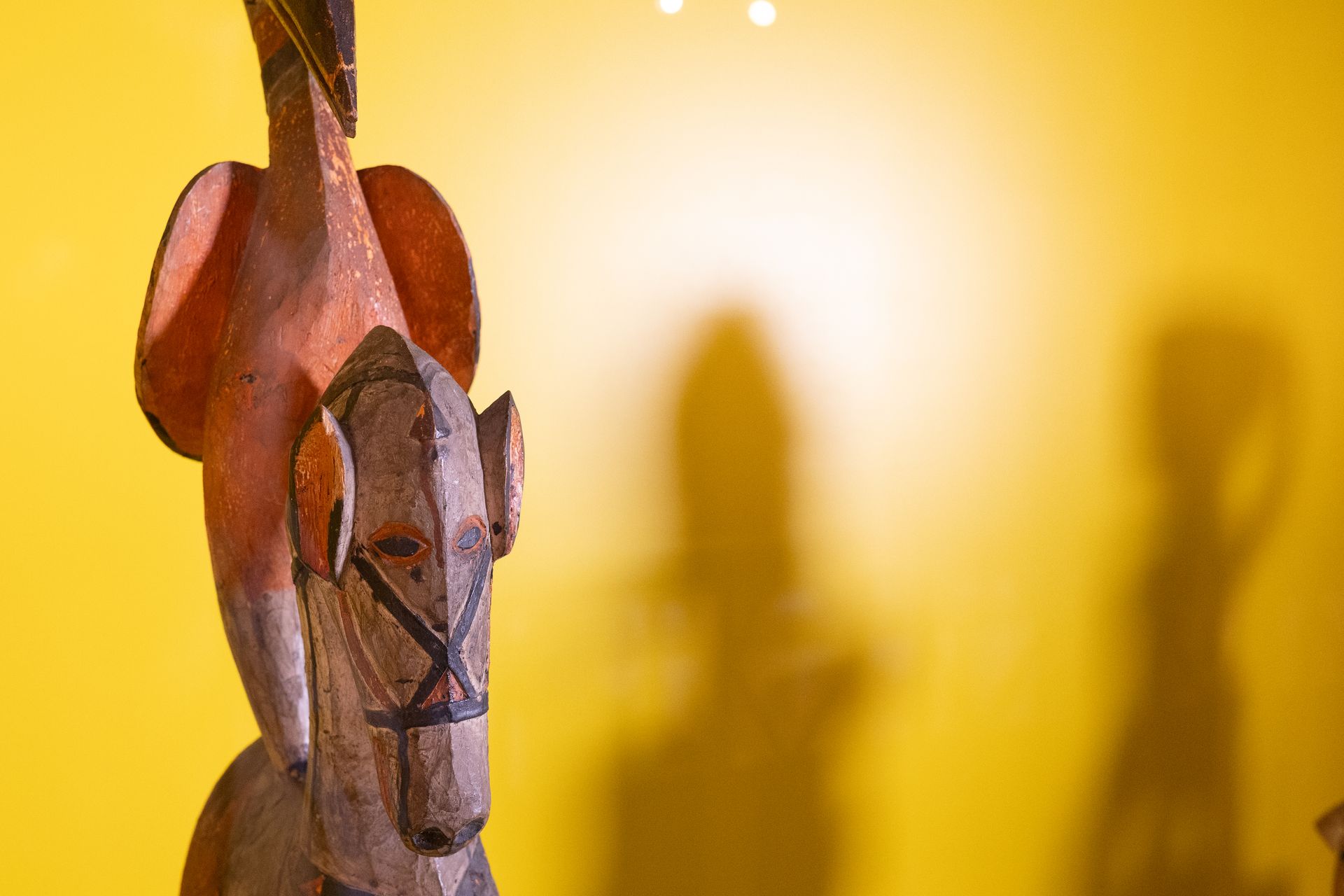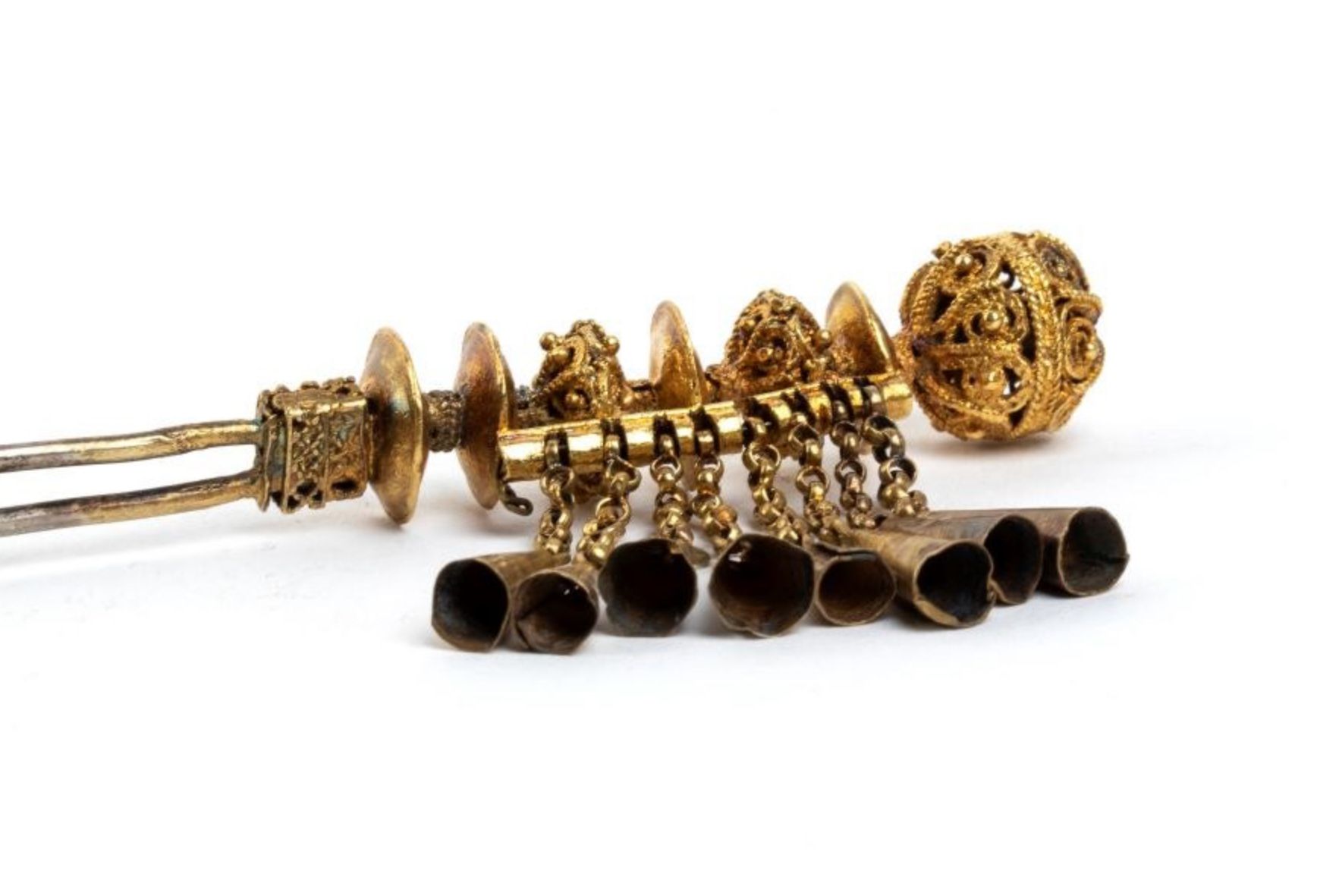Cultural Restitution
SHARE ARTICLE
Earlier this month, new guidelines were presented to Belgium's government for the management and restitution of their colonial collections. Just weeks later, the Belgian government has adopted these guidelines, at the same time agreeing to return all items illegally acquired from the Democratic Republic of the Congo.
This decision follows similar initiatives in Germany and the Netherlands, but it’s the speed of the Belgian government’s response, as well as their approach to the implementation of the new policy, that has been welcomed.
Last week Thomas Dermine, the country’s State Secretary for Scientific Policy, received government approval for an official bilateral accord with the Democratic Republic of the Congo. Belgium controlled vast swathes of territory in this former colony, where between 1885 and 1960 thousands of works of art and objects were stolen or removed by collectors, missionaries and soldiers. King Leopold II regarded the DRC as his personal fiefdom, exploited for his own personal advantage. The Belgian model proposed by Dermine involves “a coordinated and shared approach to the question of objects acquired in an illegitimate manner”. His statement has left people in no doubt that objects must be returned to their rightful owners.
“These things are not ours, full stop”, Dermine insisted in an interview with De Standaard. “Whether or not there are opportunities to preserve the heritage in Congo has no impact on ownership”.
The agreement Belgium has reached will involve projects to conserve, research and create an inventory of objects whose provenance and ownership history is in question. Belgium has offered to assist in providing interim storage facilities and where a transfer of ownership remains unresolved, they say they are prepared to consider either repatriation or retaining the object in Belgium in return for a “rental fee”. As usual, the biggest challenge to provenance research is securing the funding. So far, the government has been quiet on the source of this funding. Dermine, however, is determined to overcome these and other obstacles while, at the same time, to explore the further potential of this preferred repatriation model.
“If necessary, we will also broaden the concept of illicitly obtained,” he insists, referring to those objects acquired under force or purchased below the market price. “We can then extend this blueprint to other collections, or pieces from Rwanda and Burundi”.
The agreement to return objects slowly and not in haste will honour a request the DRC’s President Felix Tshisekedi made in 2019, a strategy he proposed to help guarantee the future preservation and storage of repatriated objects. Display and storage facilities in the recently opened national museum in Kinshasa are limited and further expansion and financial investment is required to accommodate a potentially large influx of new objects. Few if any returns are likely over the next twelve months, with the majority taking place over several years.
Nevertheless, the decision is likely to have far-reaching implications for AfricaMuseum (the Royal Museum for Central Africa) in Tervuren, Belgium, a museum that has recently undergone a £64m revamp and decolonisation process. Although the majority of items in this state-owned collection were acquired legally, the origin of about 35% of its collection (around 40,000 objects) is understood to be less certain. The Brussels Times reports that 883 items, about 1% of its entire collection, have been identified already as “illegally obtained”, although Dermine has suggested a smaller number of around 280 objects or 0.3% of the Museum’s collection. The Museum has transferred items to the Congo on an ad-hoc basis in the past, including 114 ethnographic artefacts to the Institut des Musées Nationaux du Zaïre in Kinshasa between 1976 and 1982. But this latest initiative will dig much deeper into the Museum’s collection.
AfricaMuseum confirms that provenance research is one of its priorities. However, because so much of its collection of 120,000 items was obtained during the colonial period, source information for many of those items from the Congo remains unclear. Considerable funding assistance from the government will be required to complete the enormous task ahead of them.
All returns are subject to Belgium's government receiving formal requests for restitution by the DRC. To date, no such requests have been made. But speaking to Artnet News AfricaMuseum director Guido Gryseels said: “Things that have been stolen or acquired by violence should be returned”. He added the Belgian model is "very innovative", describing the approach as the "first" to separate the legal ownership of the material from physical transfer. However, he also hopes the Congolese authorities will co-operate with the museum by agreeing to keep some of the objects in Belgium via loan agreements.
All this is likely to pile further pressure on other countries facing challenges to looted objects. Although currently France's resolve to return looted objects from former French colonies appears to have stalled, Belgium has now joined the same path as Germany, the United States and the Netherlands. Where does this leave the UK? It seems clear the stance of our national collections (though not our regional museums) is leaving the UK increasingly isolated. By continuing to ignore the morality of clinging on to stolen objects and dismissing legitimate claims for their return, the UK is turning its back on a growing international trend towards correcting acts of theft - even those acts committed two hundred years ago. This intransigence leaves the UK in a precarious position: it's reputation for the highest standards of museum stewardship squeezed and it's reputation for museum leadership on the wane. None of this is good for the reputation of 'Global Britain'.
Photo: Idimu Mask, 2nd quarter of 19th cent. Democratic Republic of Congo
Courtesy of AfricaMuseum
More News



